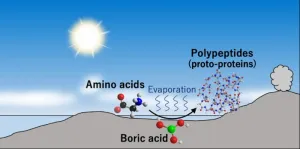(Press-News.org) In a recent study, researchers determined that derivatives of natural emulsifiers such as phospholipids found in high-fat, high-cholesterol diets can promote atherosclerosis via gut bacteria interactions with the immune system. This study could pave the way for targeted interventions for individuals who are at risk for developing heart disease.
Obesity and a high-cholesterol, high-fat diet are both well-established risk factors for atherosclerosis. In fact, obese individuals are two and a half times more likely to develop heart disease. However, the mechanistic link between obesity and atherosclerosis eludes scientists. The researchers behind this new study believe the link may be in how specific derivatives of natural emulsifiers in a Western diet alter the way that cells that line the intestines interact with gut-resident bacteria. The team published their results in the Journal of Lipid Research.
“The gut is the dietary window to the body,” said Srinivasa Reddy, professor of medicine at the University of California Los Angeles and corresponding author on the study.
Atherosclerosis, sometimes called “hardening of the arteries,” is caused by plaque buildup in blood vessels and can interfere with blood flow to critical organs, which can result in heart attack or stroke. These plaques consist of cholesterol, phospholipids and other fats; immune cells; and fibrous components.
“We study natural emulsifiers in the diet called phospholipids,” Alan Fogelman, a professor of medicine at UCLA and project supervisor, said. “For example, if you look at salad dressing and shake it up, it is the phospholipids, or emulsifiers, that keeps the oil in globules. Those emulsifiers can get modified by specific enzymes in the intestinal cells into very potent pro-inflammatory molecules in the body.”
To study the intricate connection between diet and atherosclerosis, the researchers used a mouse model that not only recapitulates the high levels of low-density lipoprotein, or “bad cholesterol,” seen in atherosclerosis patients but also lack the specific enzyme involved in the generation of pro-inflammatory derivatives of natural emulsifiers in the intestinal lining cells. Using this model, the researchers found that on a high-fat high-cholesterol diet, the cells that line the small intestine churn out reactive phospholipids that makes the intestinal lining more susceptible to invasion by the bacteria that live in the gut.
“The normal defenses for intestinal lining cells to keep bacteria in the lumen of the intestine are reduced when they take up large amounts of cholesterol and fat,” Fogelman said. “This also results in bacteria being able to come in direct contact with the cells lining your intestines called enterocytes. Without those defenses, this results in more bacterial products, like bacterial cell membranes that contain a toxin called endotoxin, getting into the bloodstream to cause inflammation.”
Release of bacterial products from the gut into the blood stream sounds an alarm in the immune system, which deploys immune cells into the blood to eliminate the potential threat.
“People who are obese and people eating high-fat, high-cholesterol diets have higher levels of endotoxin in their blood,” Fogelman said. “It's not at the level of causing sepsis, but it causes a low level of inflammation. When the cholesterol and fat come into the mix, the endotoxin kind of turns up the thermostat on inflammation and that accelerates atherosclerosis and leads to increased heart attacks and strokes.”
The team is looking for ways to reduce the phospholipid derivatives that cause endotoxin to enter the blood stream. One method they have explored previously is using a mimetic of high-density lipoprotein, sometimes called “good cholesterol.”
“We created transgenic tomatoes in our lab that mimic the good cholesterol, high-density lipoprotein,” Arnab Chattopadhyay, project scientist at UCLA and lead author of the study, said. “These tomatoes, when added to a high-fat, high-cholesterol diet, help lower cholesterol and triglycerides and also lower the inflammatory derivatives of the phospholipids.”
The team said that this method of lowering cholesterol levels and triglycerides could be beneficial to obese individuals at risk for inflammatory diseases such as atherosclerosis, arthritis, lupus, multiple sclerosis and more.
About the American Society for Biochemistry and Molecular Biology (ASBMB) The ASBMB is a nonprofit scientific and educational organization with more than 12,000 members worldwide. Founded in 1906 to advance the science of biochemistry and molecular biology, the society publishes three peer-reviewed journals, advocates for funding of basic research and education, supports science education at all levels, and promotes the diversity of individuals entering the scientific workforce. For more information about the ASBMB, visit www.asbmb.org.
END
High-fat diet ‘turns up the thermostat’ on atherosclerosis
Researchers show that fat derivatives from a Western diet lead to increased levels of gut-derived bacterial toxins, systemic inflammation, atherosclerosis
2023-05-11
ELSE PRESS RELEASES FROM THIS DATE:
Supergenes helped bring invasive plant to Norway
2023-05-11
The common ragweed plant (Ambrosia artemisiifolia) has spread rapidly in Europe and has intensified the pollen season for many allergy sufferers. Now the plant has arrived in Norway.
Common ragweed can extend Norway's pollen season into November, but fortunately the species is struggling in this country.
“Common ragweed can be found in Norway, but for now it has no stable populations,” says Vanessa Carina Bieker, a postdoc at the Norwegian University of Science and Technology's (NTNU) ...
How “extracellular chaperones” help remove abnormal proteins
2023-05-11
Proteins tend to fold wrongly and become defective when exposed to stressors such as heat, oxidation, and pH changes. Accumulation of abnormal proteins contributes to neurodegenerative diseases like Alzheimer’s.
So, how does the human body deal with such misfolded or defective proteins? It regulates protein networks via a process called ‘proteostasis,’ which prevents protein aggregation and any damage that may result from misfolded protein accumulation inside (intracellular) or outside (extracellular) cells. A set of unique proteins—molecular chaperones—play an essential role in proteostasis: they target and interact with misfolded proteins, maintain their solubility, ...
Therapy sessions benefit mothers, children in homeless shelter
2023-05-11
Short-term therapy sessions with parents and their children in homeless shelters could help improve parenting skills and reduce parental stress and children’s post-traumatic stress symptoms, according to a pilot study published by the American Psychological Association.
Researchers from Florida International University partnered with Lotus House in Miami, one of the largest women’s homeless shelters in the U.S. The study included 144 families (mother and one child) with children from 18 months to 5 years of age. The research was published online in the Journal ...
Sleep apnea associated with increased risk for long COVID
2023-05-11
Sleep apnea may significantly increase the risk for long COVID in adults, according to a study led by the National Institutes of Health’s RECOVER Initiative and supported by NYU Langone Health as home to the effort’s Clinical Science Core (CSC).
As of April 2023, more than 100 million Americans had been infected with the virus that causes COVID-19. As of April the U.S. Government’s Household Pulse survey estimated that about 6 percent of U.S. adults are experiencing symptoms associated with long COVID, including brain fog, fatigue, depression, and sleep problems. ...
A dangerous eye infection from tainted eye drops, months before the CDC’s warning
2023-05-11
HIGHLIGHTS
Pseudomonas aeruginosa is a pathogenic and drug-resistant gram-negative bacterium
The CDC advised against using some artificial tear eye drops that were contaminated with the microbe
In November 2022, doctors in Cleveland diagnosed a patient with a corneal ulcer with a P. aeruginosa infection
The patient acquired the infection from tainted eye drops months before the CDC’s February 2023 warning
Washington, DC – In February 2023, the Centers for Disease Control and Prevention warned people against using EzriCare eye drops because bottles of the product had ...
Brigham experts provide insights on how Alzheimer’s drug lecanemab slows cognitive decline
2023-05-11
WHO: Dennis Selkoe, MD, co-director of the Ann Romney Center for Neurologic Diseases at Brigham and Women’s Hospital and corresponding author of the paper in Neuron. Andrew Stern, MD, PhD, of the Ann Romney Center for Neurologic Diseases at BWH and first author of the paper in Neuron
WHAT: In a report published in Neuron, a team led by investigators from Brigham and Women’s Hospital reveals the structure of the therapeutic target of lecanemab, a drug approved by the US Food and Drug Administration in January 2023 for the treatment of Alzheimer’s disease. While the ...
Traditional medicine plant could combat drug-resistant malaria
2023-05-11
Much of what is now considered modern medicine originated as folk remedies or traditional, Indigenous practices. These customs are still alive today, and they could help address a variety of conditions. Now reporting in ACS Omega, a team of researchers have identified compounds in the leaves of a particular medicinal Labrador tea plant used throughout the First Nations of Nunavik, Canada, and demonstrated that one of them has activity against the parasite responsible for malaria.
“Labrador tea” refers to multiple, closely related plants — all members of the genus Rhododendron. ...
ESO telescope reveals hidden views of vast stellar nurseries
2023-05-11
Using ESO’s Visible and Infrared Survey Telescope for Astronomy (VISTA), astronomers have created a vast infrared atlas of five nearby stellar nurseries by piecing together more than one million images. These large mosaics reveal young stars in the making, embedded in thick clouds of dust. Thanks to these observations, astronomers have a unique tool with which to decipher the complex puzzle of stellar birth.
“In these images we can detect even the faintest sources of light, like stars far less massive than the Sun, revealing objects that no one has ever seen before,” says Stefan Meingast, an astronomer at the University of Vienna in Austria and lead author ...
Majority of nurses attribute well-being struggles to staffing shortages
2023-05-11
Cross Country Healthcare, Inc. (NASDAQ: CCRN), a market-leading, tech-enabled workforce solutions platform and advisory firm, in collaboration with Florida Atlantic University, today announced the results of its annual survey of nursing professionals and students.
The study found that although nurses are passionate about doing meaningful work and earning a good income, only one-third of nurses plan to remain in the profession for the foreseeable future, and about one-fourth plan to leave in just one to two years from now. The survey, conducted in collaboration with FAU’s Christine E. Lynn College of Nursing, found ...
Researchers uncover how primordial proteins formed on prebiotic earth
2023-05-11
How did catalytic organic polymers emerge on prebiotic Earth? Answering this essential question will unlock key understandings in the origin of life.
A team of scientists at Tohoku University have recently found a potential environment for the reaction that produced catalytic organic polymers. To do so, they dried down amino acid solutions containing boric acid and found that boric acid catalyzes polypeptide synthesis under neutral and acidic conditions. The longest peptides formed in the experiments were 39 monomer-long glycine polypeptides under a neutral condition.
Previous studies ...
LAST 30 PRESS RELEASES:
Next-generation CAR-T designs that could transform cancer treatment
As health care goes digital, patients are being left behind
A clinicopathologic analysis of 740 endometrial polyps: risk of premalignant changes and malignancy
Gibson Oncology, NIH to begin Phase 2 trials of LMP744 for treatment of first-time recurrent glioblastoma
Researchers develop a high-efficiency photocatalyst using iron instead of rare metals
Study finds no evidence of persistent tick-borne infection in people who link chronic illness to ticks
New system tracks blockchain money laundering faster and more accurately
In vitro antibacterial activity of crude extracts from Tithonia diversifolia (asteraceae) and Solanum torvum (solanaceae) against selected shigella species
Qiliang (Andy) Ding, PhD, named recipient of the 2026 ACMG Foundation Rising Scholar Trainee Award
Heat-free gas sensing: LED-driven electronic nose technology enhances multi-gas detection
Women more likely to choose wine from female winemakers
E-waste chemicals are appearing in dolphins and porpoises
Researchers warn: opioids aren’t effective for many acute pain conditions
Largest image of its kind shows hidden chemistry at the heart of the Milky Way
JBNU researchers review advances in pyrochlore oxide-based dielectric energy storage technology
Novel cellular phenomenon reveals how immune cells extract nuclear DNA from dying cells
Printable enzyme ink powers next-generation wearable biosensors
6 in 10 US women projected to have at least one type of cardiovascular disease by 2050
People’s gut bacteria worse in areas with higher social deprivation
Unique analysis shows air-con heat relief significantly worsens climate change
Keto diet may restore exercise benefits in people with high blood sugar
Manchester researchers challenge misleading language around plastic waste solutions
Vessel traffic alters behavior, stress and population trends of marine megafauna
Your car’s tire sensors could be used to track you
Research confirms that ocean warming causes an annual decline in fish biomass of up to 19.8%
Local water supply crucial to success of hydrogen initiative in Europe
New blood test score detects hidden alcohol-related liver disease
High risk of readmission and death among heart failure patients
Code for Earth launches 2026 climate and weather data challenges
Three women named Britain’s Brightest Young Scientists, each winning ‘unrestricted’ £100,000 Blavatnik Awards prize
[Press-News.org] High-fat diet ‘turns up the thermostat’ on atherosclerosisResearchers show that fat derivatives from a Western diet lead to increased levels of gut-derived bacterial toxins, systemic inflammation, atherosclerosis






